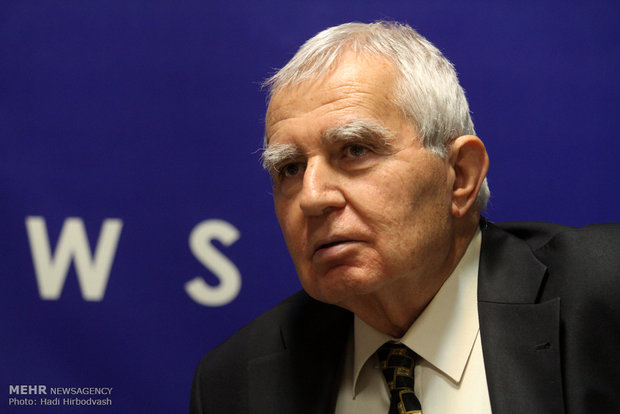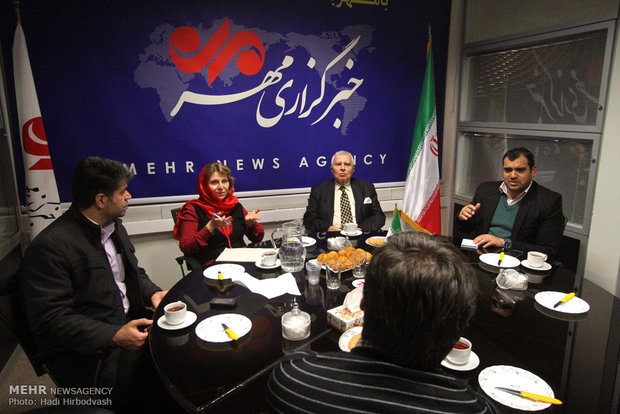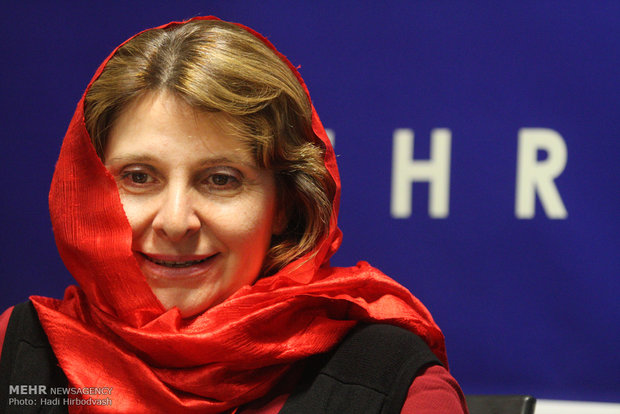Turkish analysts included retired Ambassador Murat Bilhan and the current Vice-Chairman of Turkish Asian Center for Strategic Studies (Turkish acronym: TASAM) and Özden Zeynep Oktav, Professor of Political Science and International Relations, both from Yildiz Technical University in Turkey, sat in an interview with Mehr News International Service to answer questions on the Syrian refugee-migrant crisis, Turkey’s role in the crisis, and the future of the Turkey’s attempts to join the EU, among other things:

Turkey has started a new chapter with the EU in order to join it. How do you assess this process? Do you think that at the end of the day Turkey will be accepted by the EU?
Bilhan: This is a long story. It started in 1963 and ever since, Turkey has been waiting in the lines to enter the EU as a member. Turkey has been member to all European institutions except the EU. Ever since, Turkey has been a member of all European organizations. At the end of the Second World War, Turkey was included in the Truman Doctrine and Marshall Plan, thus it was attached to western system. Turkish-Greek relations in the western orientation system has always been a very important issue. Turkey first in 1963 wanted to become a member.
Oktav: I am not that much hopeful that Turkey will be accepted as a full member.
Bilhan: This point is very important, Turkey’s accession to all EU institutions. That included also Turkish-Greek relation in the western-oriented system. There was always both a competition and a western attitude to take Turkey and Greece together in all these institutions including NATO. This treatment was diverted only in EU. Turkey first wanted to become a member and in 1963 it signed an agreement. Now after 52 years, Turkey has not been accepted yet. But was it the case that only Europeans rejected Turkey? No, because there tide turned, Turkey also began to put distance to EU. So, now only less than the majority of Turkish people want to join the EU, but I think according to public opinion polls 28 percent of Turkish people supported the idea of joining EU. It means only a small minority of Turkish people support the membership idea. Most EU members don’t want Turkey almost 50 percent, but not as low as Turkey. Mostly it is agreed that if Turkey becomes a member of EU family, they all would be benefiting. They would have some assets and plus values especially in the field of security. They also think Turkey would be a good market for them with a large population. But now Turkish economy has much room for cooperation and flourishing. Turkish economy now is better than the economy of some of the EU members. Now, they have started to make other reasons to reject Turkey such as cultural differences, life style and some certain freedoms, freedom of expression and human rights.
Oktav: But Turkey has benefited a lot, too.
Bilhan: Yes, you are right. That helped Turkey also in a way. It pushed Turkey to raise its standards.
Oktav: It helped Turkey to promote its democratic values, economy and security.

Some refugee tragedies happened just couple of weeks before Angela Merkel, German Chancellor’s visit to Turkey that led to some agreements between Turkey and EU. Observers say that Turkey is using the migrant issue as a leverage against EU. What do you think of this?
Oktav: Nowadays some of the most important issues are the issues of refugees. Till this year, Turkey had not want to be a buffer zone between Syria and EU, but none of the European states minded that Turkey was struggling with the refugee issue. Syrian refuges gradually secretly tried to go to European countries such as Greece, however, their final destination was Germany because they expect to have a German citizenship and welfare. Turkey have never promised the refugees citizenship and it considered them only as guest, so the refugees try to make a better life. After the recent events and tragedies, EU appears to have understood the important role of Turkey. It realized that Turkey is a very important country to cope with the refugee problem not only with the ones coming from Syria, but also from many other counties like Afghanistan, Pakistan, Iraq, Iran, Libya and some other African countries. Merkel visited Turkey and negotiated a lot of things. Merkel is one of the leaders that has not promised Turkey’s full membership. Turkey didn’t use this issue as a leverage against Europe. It just wanted to draw the attention of the EU to the refugee issue to let them know how difficult and costly its job of tackling the refugee issue is. Europe understands the crisis and Turkey’s role very well; hence, Merkel came to Turkey. The Turkish government knows the EU will not accept Turkey as a full member in the near future. The 3 billion dollars offered to Turkey by EU is a very small amount comparing with its expenditures.
Bilhan: Turkey has spent 8 billion dollars on refugees and this money has come from the tax payers by Turkish people. Turkey just wanted to share this burden with Europeans. Imagine Germany has only taken 80000 refugees as a rich nation, but we as a poorer nation have already taken 2.5 million Syrian refugees. It is injustice. Furthermore, they choose refugees like choosing vegetables. They are choosing qualified Syrians to take them to Europe to use them. Their idea is not to help Turkey or the refugees but they just want to collect educated and rich Syrians to use them. The idea is very hypocritical. Their treatment is not honest. Impartially speaking, I would like to underline that any criticism in this respect against Turkey is unacceptable. First of all, Europeans should fulfil their humanitarian responsibilities. Thousands of refugees have been drowned in the sea and in some cases it was proven that they have been pushed from the rubber boats to sink and kill the refugees. It is a human tragedy. Responsibility should be shared internationally.
Here is a question. Refugees themselves want to go to Europe. Why they don’t want to go to Saudi Arabia and other regional countries despite their close religious friends being there? At least some of these refugees can be supported monetarily by Saudis. Why Saudis don’t help them?
Oktav: Saudi Arabia is very much criticized by Turkish TV channels, media and people. They are very rich, they spend a lot but when it comes to refugees they don’t spend.

Turkey has been benefited from bipolar system in the past. It seems that Turkey’s strategic status in present unipolar system is not like that in the past. How do you think of this?
Bilhan: Turkey could not benefit from bipolar system to benefit from both poles like Greece. Turkey was forced to follow only the western route because of historical rivalry between Turkey and Russia. Historically, Turkey had fought 16 wars against Russia, so it means there was an enmity, hostility and rivalry between Russia and Ottoman Empire. That is why Turkey didn’t trust the Eastern Bloc. During Stalinist era in Russia, Russians asked for Turkish territory. They wanted eastern provinces of Turkey and also bilateral control of Turkish straits. Turkey was intimidated by Russian power, therefore Turkey had chosen western umbrella for its security since the end of the Second World War and during the Cold War.
Considering the Cypriot issue, how is this problem going to be settled in order to pave the way for Turkey’s accession to EU?
Oktav: In Cypriot some negotiations are going on. In fact, Israel doesn’t want the issue to be solved. The situation is complicated there due to energy and water project defined for Cypriot. There are lots of barriers in the way of solving the issue including foreign interventions. However, despite all these barriers, there are signs of settlement. New Turkish Cypriot head shows more flexible and softer stance and he supports unity talks. The result of the referendum which is going to be held in March will be very important for the settlement of the problems between Turkish and Greece Cypriot.
Interview by: Payman Yazdani, Javad Heirannia, Hanif Ghaffari
End of Part One

























Your Comment